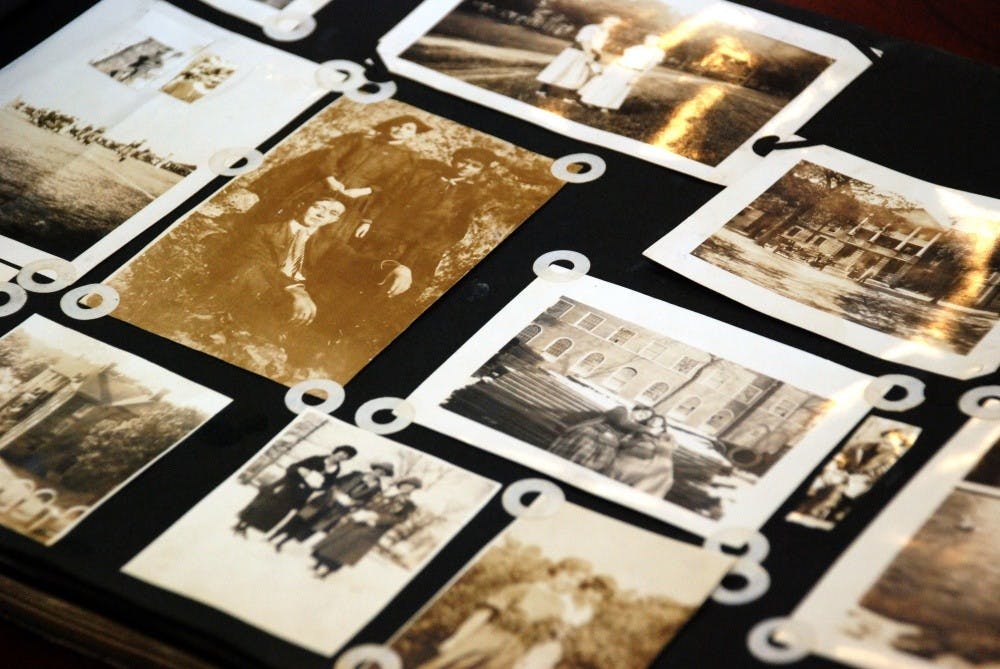With the various changes going on at Elon's campus, it is hard to predict what the school may look like within the next few decades. But students who wish to see what Elon looked like almost 100 years ago are free to explore the past by visiting Elon's online archived collection of historical documents and scrapbooks.
Katie Nash, Belk Library's archivist and special collections librarian, was in charge of the projects for digitizing the documents, as well as preserving and digitizing scrapbooks, student memoirs put together by Elon students before 1923.
The library recently received a special grant from the North Carolina Preservation Consortium to buy supplies for preserving the scrapbooks before they were digitized.
"The majority of the scrapbooks are not in good shape," Nash said. "They are just stacked on top of each other and not usable, and this grant provided us with money for special boxes in different sizes to house the scrapbooks."
The library worked with the North Carolina Digital Heritage Center in Chapel Hill to digitize nine scrapbooks at no cost to Elon, Nash said. The digital collection includes an online record that gives the title, creator, date and a description for each scrapbook.
"If anyone is doing online research, they can see that we've got a scrapbook of whoever they're looking for and that it can be easily viewed," Nash said. "We also make sure we put them in context so you know what Elon was like at the time the scrapbook was created."
Senior Jess McDonald is a student assistant for Belk Library's archives and worked on physically preserving the scrapbooks during the summer. She said the project interested her because the books often included information about major events in Elon's history, such as a flu outbreak in 1918.
"One of the scrapbooks actually belonged to a student who died during the flu outbreak, named Annie Gordon Floyd," McDonald said. "Someone else finished it after she died, and looking through her scrapbook definitely put a face to that history, and now that the scrapbook is digitized, other people can have that same experience."
Not only are the scrapbooks accessible online, but researchers can now reference some of Elon's historic publications, such as alumni magazines published since 1928 and academic catalogues published since 1891. Other publications include two student-written literary periodicals, the "Elon College Monthly" and the "Elonian."
"They are very unique publications to Elon and they represent student work," Nash said. "It's a lot of information jammed into several publications, but they give a very rich history of the school."
The historical online data is useful to students, Nash said, because it has "good research value," and anyone can access the information anywhere at anytime. Plus, not as many people will be handling the original copies, which will aid in their preservation.
"These are important primary documents to have available for students and researchers who are interested in the history of Elon," McDonald said. "It's a different experience to look through someone's personal scrapbook and put yourself in their shoes than it is to read a book, which is more removed from the source."
Nash also emphasized the importance of organizing the scrapbooks because each one is student perspective-driven and gives an idea of what was important to a student during a certain time period.
"It's a piece of student history that we don't want to lose, as well as campus history that's all put into one book, and we may not have that information elsewhere," she said.


